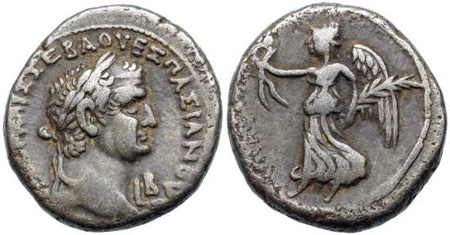THE TWELVE CAESARS
ACTA ACCLA, August 2005
Titus Flavius Vespasian
Tenth of the Twelve Caesars
Emperor 69 - 79 CE
Text by Bob Effler
"Oh dear! I think I am turning into a god!" Thus were recorded for posterity, the humorous last words of one of antiquity’s most important figures to hold the position of Emperor of Rome. Not necessarily characteristic of the dour and somewhat perverse or eccentric personalities that could so often typify the lives of the men who had held this position of absolute power before and after him, Vespasian's deathbed levity was expressed by a man who held the power of life and death over millions of people throughout Europe and beyond. Yet it is this very human characteristic which still identifies Vespasian, even today, as one of the more just and even-tempered personalities to hold that position of absolute authority.

Emperor Vespasian
Born in Reate, Italy in the ninth year of the common era, his birth occurred at a time when the Empire was experiencing a period of dire insecurity. This insecurity came to pass, due to one of Rome's most calamitous military setbacks - at the Battle of the Teutoburg Forest - deep within the dark forests of an unconquered Germany. Born into a family of tax collectors and therefore of relatively humble origins, he quickly became noticed at the Roman court after successfully marrying into the Senatorial class. Under the emperor Claudius, he earned his first real notoriety as an individual possessed of superior military talents, during the Roman invasion and conquest of Britain. He gained further skills, both political and military, in the service of Nero, which began with his appointment as Governor of Judea. Assigned the task of pacifying that rebellious province, it was in the performance of those duties, that Vespasian entered the political and military arena for good. This would be an area of influence, which would consume the remainder of his life.
The watershed of Vespasian's life, as well as for the rest of the Roman world, came in the year 69, in the aftermath of Nero's death by his own hand. The Year of the Four Emperors (68-69 CE) saw the advent of civil war throughout the empire, the issue being the control of the Principate, or imperial office. This was complicated further by the unfinished business Rome had in Judea, in conducting a war of subjugation in a volatile province. As one of the four of the so-called 'ambitious governors' competing to fill the vacuum left in the wake of Nero's suicide, Vespasian turned his nearly-completed military affairs in Judea over to his oldest son (and future emperor) Titus, and left for Rome to eliminate his rivals and establish a new imperial house (Nero having been the last of the Julio-Claudian emperors, with no bloodline successors).
Thus was established a new imperial dynasty, the Flavians, whose power was demonstrated and reinforced by the successful suppression of the revolt in Judea by the year 70 (a popular theme celebrated on the coinage of the period, an example of which is placed at the top of this narrative). From this point, Vespasian turned his efforts to undoing the harm that civil war and political misrule had caused the empire. A significant portion of his political efforts, were directed towards the Roman Senate. He had no intention of restoring the Republic. But he caused the Senate to become, in the words of Michael Grant, "less metropolitan and noble, more municipal and Italian, than it had been before." Vespasian was genuinely concerned about the issue of Roman citizenship, problems of the individual provinces, and therefore more focused on the care of a vast, common civilization. Taxation was directly related to this new 'world view'. But Vespasian's roots as a tax collector, made him sensitive to the need to accumulate and govern finances firmly and prudently, and he exercised good judgment in the use of imperial funds for the benefit of the Empire.
From a personal standpoint, Vespasian believed in active, public participation in governmental affairs. His accessibility as a leader was an important characteristic of his personal rule. He is known to have had a sense of humor (off-color, at times), and yet valued the growth of educational institutions, which furthered the spread of Greek and Latin culture and language. He is also well known, aside from his military talents, as a builder of public works, the Colosseum being his most enduring monument to history.
His efforts to establish a new dynasty are well known. This is exemplified most obviously through the use of dynastic themes on his coinage, which, with the exception of the issues of Nero, can arguably be considered to represent some of the most realistic imperial portraits Roman engravers ever produced. Vespasian issued coinage in both base and precious metals, with images directly associated with cult of emperor worship and the imperial family’s role as the proselytizers of Roman pantheism throughout the Empire. Included on both imperial and provincial coinage from the Flavian era, are examples carrying the images of his two sons, Titus and Domitian, in that attempt to perpetuate his imperial house. This was to a degree successful, as the Empire was ruled, for over a quarter of a century, by members of his family.
What meaningful conclusions, then, can be drawn relative to the legacy of Vespasian as a ruler? First, we can conclude with some certainty that his ability to bring peace and political stability to one quarter of the world’s population, during a time of crisis, perpetuated the legacy that Augustus established a century before. Second, with perhaps some qualifications, we can say that he stands out as a moderate, prudent, and fair political leader. And finally, his personal belief that he was, indeed, 'just a man', shows us that even in periods of remote history, there were men of character who were able to rise above the corrupting temptations of political power, and rule for the common good of the people in general.
BIBLIOGRAPHY
Grant, Michael, The Roman Emperors, Simon & Schuster, reprinted by Barnes and Noble, 1997.
Suetonius, The Twelve Caesars.
SUGGESTED WEB RESOURCES ON VESPASIAN
Vespasian on De Imperatoribus Romanis
Vespasian on Wikipedia
Suetonius, The Lives of the Caesars - The Life of Vespasian (English)
Suetonius. Vespasian - Rolfe Translation
Suetonius, De Vita Caesarum - DIVVS VESPASIANVS (Latin)


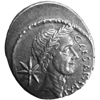 Julius Caesar
Julius Caesar Augustus
Augustus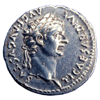 Tiberius
Tiberius Caligula
Caligula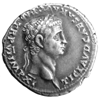 Claudius
Claudius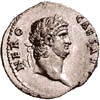 Nero
Nero Galba
Galba Otho
Otho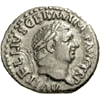 Vitellius
Vitellius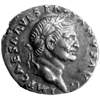 Vespasian
Vespasian Titus
Titus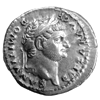 Domitian
Domitian
